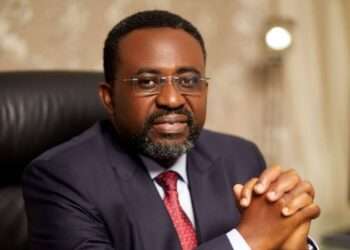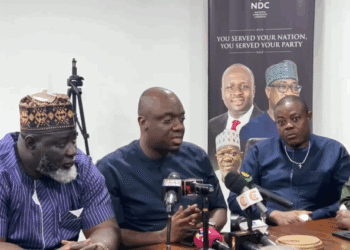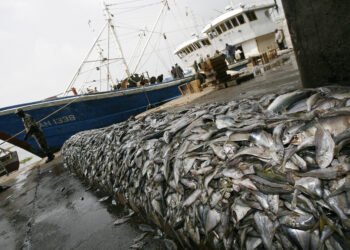South Africa’s central bank has stated that the recently imposed U.S. tariffs on South African exports are expected to have only a modest impact on the country’s economic growth, with inflation remaining broadly stable.
This assessment was shared by South African Reserve Bank Governor Lesetja Kganyago during the bank’s Annual General Meeting on Friday, as the nation confronts escalating diplomatic and economic tensions with the United States.
South African exports to the U.S. now face a 30% import duty, the highest imposed on any Sub-Saharan African nation. The punitive measure follows Pretoria’s failure to conclude a trade agreement with Washington ahead of a deadline set by President Donald Trump. The move has sparked alarm among South African industry leaders, who warn of potential job losses across key sectors such as automotive and agriculture.
In a recent phone call, President Cyril Ramaphosa reached out to President Trump in an attempt to accelerate trade negotiations, signaling Pretoria’s concern over the economic consequences of the tariffs.

Yet Governor Kganyago sought to ease public fears, describing the impact as manageable: “Our preliminary assessment is that tariffs and the other uncertainties in the global economy are causing modest damage to growth while leaving inflation broadly unchanged,” he told shareholders.
He added that although the U.S. is a major trading partner, it is not as crucial to South Africa’s economic engine as regions like Europe, China, or the Southern African Development Community.
U.S. Tariffs Seen As Political Signal
According to data from the South African Revenue Service, exports to the U.S. made up approximately 7% of total exports in June, compared to 12% to China and 8% to Germany. The central bank’s forecast has been revised slightly due to the tariff increase, with the projected economic growth for 2025 dropping by just 0.1 percentage points.
“This is a setback, but not catastrophic,” Kganyago noted. He explained that the economy has been facing a prolonged period of low growth, with the 1% forecast for 2025 reflecting broader stagnation trends over the past decade.
Despite the onset of tariffs, local financial markets have shown resilience. In a note issued by ETM Analytics, the firm remarked that investors remain confident in the adaptability of South African businesses, with many expected to redirect their exports toward alternative markets.
Nevertheless, the broader diplomatic context paints a more troubling picture. Relations between the U.S. and South Africa have deteriorated significantly in recent years, marked by sanctions, trade disruptions, and the collapse of long-standing military cooperation agreements. The rift has deepened under President Donald Trump’s leadership, following a series of disputes over land reform policies, foreign alliances, and ideological differences.
One major point of contention is South Africa’s land redistribution initiative, which aims to rectify historic injustices from the apartheid era. The Trump administration, however, has viewed these efforts with suspicion, claiming that White South African farmers face persecution, a claim dismissed outright by Pretoria. The situation worsened in March 2025 when South African Ambassador Ebrahim Rasool was expelled from the U.S. after accusing the Trump administration of harboring white supremacist sympathies.
Economic ties have been fraying as well. The 30% tariff has endangered thousands of jobs and undermined the benefits South Africa previously enjoyed under the African Growth and Opportunity Act (AGOA). The severing of military cooperation, once a bedrock of strategic partnership, is another indicator of the relationship’s decline.
Complicating matters further, South Africa has taken assertive foreign policy stances that align with U.S. rivals, including China, Russia, and Iran. Pretoria’s perceived neutrality in conflicts such as the Russia-Ukraine war and its legal challenge against Israel at the International Court of Justice have drawn criticism from U.S. lawmakers, some of whom are now pushing legislation aimed at sanctioning South African officials.
In the face of these tensions, President Ramaphosa continues to advocate for dialogue and investment, though analysts remain skeptical about the prospects for fully mending the fractured alliance.
READ ALSO: Energy Analysts Urge Oil Companies to Boost Efficiency



















